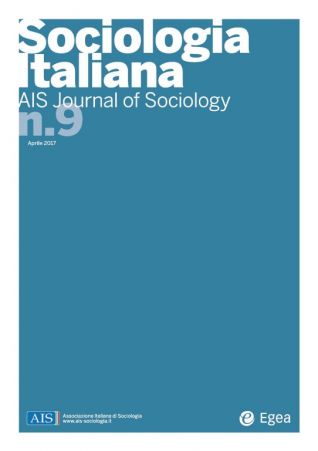AIS
2017/9
Giustizia ed equità nella società globale (Justice and equality in the global society), di Alessandro Ferrara
L’articolo affronta il tema di giustizia ed equità nella società globale all’incrocio fra filosofia politica e teoria sociale, rivisitando una domanda classica della teoria politica normativa, da Platone a Rawls: quanta e quale diseguaglianza è compatibile con la giustizia? Nella prima parte questa domanda viene affrontata con riferimento alle conseguenze delle diseguaglianze globali sul contesto nazionale. La crescente finanziarizzazione dei mercati globali resuscita una inedita sorta di «potere assoluto», restaura la rendita e introduce diseguaglianze in grado, secondo economisti quali Stiglitz e Piketty, di erodere i valori meritocratici e i principi di giustizia su cui si fondano le moderne società democratiche. Nella seconda parte, si argomenta che la giustizia ed equità degli assetti globali si misura anche direttamente, come domanda intorno a cosa sia la giustizia nei rapporti tra gli stati (Rawls, Walzer) e come domanda intorno alla global justice distributiva, ovvero cosa ci dobbiamo l’un l’altro come abitanti di questo pianeta, al di là delle strutture politiche entro cui viviamo e dei rapporti che instaurano fra loro (Pogge, Risse).
Justice and equality in the global society
This paper focuses on the link between justice and fairness in the global society, analysed from the perspective of political philosophy and social theory. It revisits a classic issue in normative political philosophy from Plato to Rawls: how much (and what kind of) inequality is compatible with justice? In the first section, the consequences of global inequality on the national setting are discussed. The increasing financialization of the global market is argued to have revived a sort of «absolute power», raising rent and levels of inequality that, according to economists Stiglitz and Piketty, are capable of eroding the meritocratic values and the principles of justice on which modern democratic societies are based. In the second section it is argued that justice and fairness on a global level can also be assessed directly , by addressing the two questions: what is justice between states (Rawls, Walzer)? What do we owe each other qua inhabitants of the planet, independently of the obligations arising from the polities we are citizens of and their reciprocal relations (Pogge, Risse)?
Keywords: Giustizia, Equità, Diseguaglianze, Potere assoluto, Democrazia, Justice, Equality, Inequality, Absolute power, Democracy
DOI: 10.1485/AIS_2017/9_APRILE_3428146
Pagine 121-128
L'ACCESSO A QUESTO CONTENUTO E' RISERVATO AGLI UTENTI ABBONATI
Sei abbonato? Esegui l'accesso oppure abbonati.
